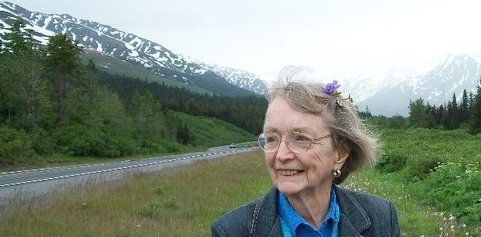Part 2 of the Legacy of my Father, June 10 blog
My 18th birthday
Five months to the day after my father’s suicide.
The unwanted gift of tears arrived without warning,
without my permission
bursting through my wrapping of protective armor
that had been slowly eroded, not strengthened,
by the process of denial and minimization.
I had thought I held my grief well, the right way,
strong and silent
hiding behind my invincible shield,
proudly displaying our family insignia of “Really, I’m fine.”
But on my 18th birthday, pretense fell away
I fell headlong into the void when no father was there catch me and say ,
“Happy Birthday, pumpkin head”
Why was I crying?
It had been five months – shouldn’t I be over it by now?
I judged my tears and perceived this weakness harshly.
Everyone else seemed to be fine.
But in truth I never asked
for fear my truth might be revealed. I wasn’t fine.
I didn’t know they were also hiding behind their own shields.
I did not understand for many more years
that the ever unfolding journey of grief takes a lifetime.
I initially avoided it by working hard to achieve – to over-achieve, actually,
To ward off my new sense of feeling unworthy.
A truly worthy child would not have a parent leave under such horrific circumstances.
Unexpected deaths can leave behind
the unwanted accompaniments of increased vulnerability
and fear of more abandonment by the survivors.
I did not know these feelings set up home in my unconscious mind, becoming drivers in my world.
It took another 10 years to realize I was angry.
I was angry my father killed himself
I was angry I had to try and understand and be sympathetic of his choice.
I was angry I was left to live with his decision, not his presence.
I was angry at myself for not being brave enough to tell him I loved him before it was too late.
Wait – how can someone be angry at a dead person,
a person whose acute suffering led to a desperate act? Have I no heart?
More self-judgment
until I began to recognize there are the many faces and phases of grief.
As a nurse on the cancer ward, I became the inadvertent student of the patients and families I served. Mortality rates were high in those days and I was grateful they acted as my teachers and guides for the journey of death and dying, grief and loss.
I saw those that expressed their grief with loud wails and flailing arms.
Externalized grief was foreign to me, and initially I wanted to run,
but I learned to stay and be present despite my discomfort.
I witnessed the judgments when family members expressed their grief differently,
whether by demonstrating avoidance, stoicism, beating their chests, or crying.
It was easier to share grief with those who had the same style of grieving.
Other styles were deemed maladaptive.
I saw the guilt and fear that accompanied grief.
And I saw the anger.
“I begged you not to smoke and now you are dying of lung cancer, deserting us!”
“You don’t love us enough to try harder to stay alive for us.”
”If your faith was stronger, you could have beat this”
I recognized that beneath the anger was simply grief and loss.
Lost opportunity. Lost presence. Lost future.
A compassionate and understanding heart was the only treatment for that pain.
In understanding and accepting these feelings in others, I began to understand and accept my own.
By removing my protective shield to embrace my history and vulnerability
I could be more fully present,
without judgment,
a healing presence for others
to help them face the fears and impending loss,
share love openly, prepare for closure,
and thoughtfully create the legacy they will leave behind.
Death is hard enough.
Things left unsaid or undone is harder
for both sender and receiver.
My work with others became a healing path for me.
The unwanted experience that was initially thrust upon me when I was 17,
was unwrapped and unravelled over time to reveal the gift hidden deep inside.
By taking the threads from my initial unraveling from my father’s suicide,
I could weave a tapestry for my own life, personally and professionally,
transforming the painful lesson into an opportunity to serve those who are facing the end of life.
For that, I am grateful.







